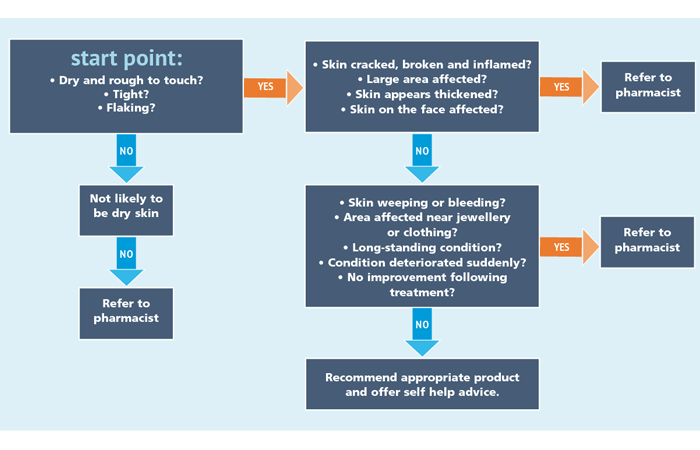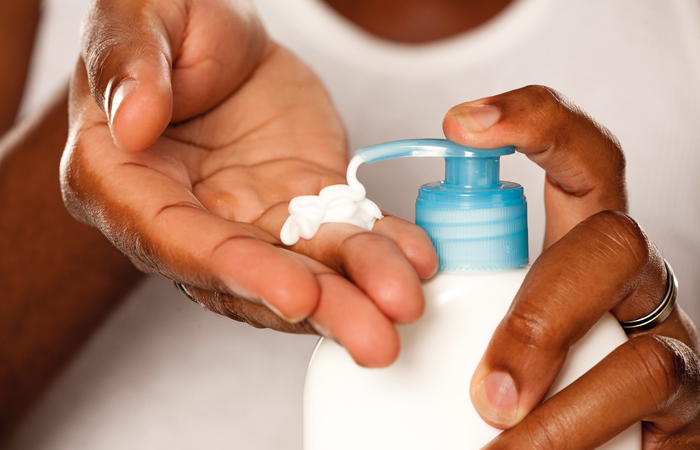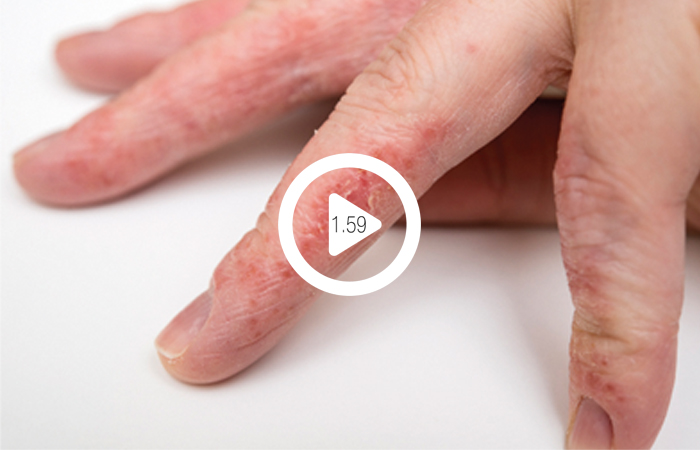10-minute clinic: dry skin and eczema
In OTC Category Reviews
Follow this topic
Bookmark
Record learning outcomes
This handy 10-minute clinic is designed to act as a quick reference guide that will help you when advising customers on the skincare category. The flowchart below will lead you through the decision-making process to help you respond to customer queries

At a glance

When to refer to the pharmacist
- If the condition has not improved with the use of emollients
- If dry skin has cracked and the skin is broken or bleeding
- If dry skin is painful or appears to be infected
- If the sufferer has extremely dry skin or eczema on their face.
Caution
Customers who are using emollient therapy should be aware of the potential risk of serious burns, according to the Medicines and Healthcare products Regulatory Agency (MHRA).
Emollient products are not flammable in, or of, themselves. However, they act as an accelerant, increasing the speed of ignition and intensity of the fire when fabric with dried-on residue is ignited.
Fabrics that have come into contact with an emollient, such as clothing, bedding and dressings, can be highly flammable, even after washing. This warning includes both paraffin-based and paraffin-free emollient products.
The MHRA therefore says patients should be advised:
- Not to smoke; use naked flames (or be near people who are smoking or using naked flames); or go near anything that may cause a fire while emollients are in contact with their clothing or medical dressings
- To change clothing and bedding regularly – this may remove some of the product build-up but not totally remove it.

Whenever you talk to any customer, remember WWHAM:
Who is it for?
It may not be the customer who needs the treatment. If the customer is a representative, it is important that they are able to fully explain to the patient how the product should be used. Always refer them to the patient information leaflet (PIL) or directions on the packaging.
What are the symptoms?
Refer the customer to the pharmacist if there are symptoms of an infection.
How long have the symptoms been present?
This will help you find out the cause of the condition.
Action already taken?
This will help you establish if the customer has already tried a product that hasn’t helped or wasn’t appropriate.
Medication?
It is important to refer any customer who is taking any other medication to the pharmacist.
You don’t have to ask these questions in order, and a customer might give you some of this information without you asking. As long as you get them into the conversation, you should be able to find out the information you need in order to make a recommendation. The golden rule to remember is: if in doubt, refer to the pharmacist. Don’t be embarrassed to ask for their advice as they have a lot of information about products and symptoms to hand that you may not be aware of.
Self care tips
- Apply an emollient at least twice daily in downward strokes – an average of 600g per week is recommended for adults
- Use a complete skincare regimen: shower and bath products, as well as a cream and/or lotion
- Avoid using soap, as this can lead to dryness and worsen the condition. Soap substitutes (e.g. emollients) can be used instead
- Use bath or shower emollients, rather than gels, daily as these will help to lock in the moisture absorbed by the skin during bathing
- Avoid overly perfumed bath and shower products, as well as other substances that may aggravate the skin
- Wear cotton, silk or soft man-made materials next to the skin
- Avoid contact with materials such as wool
- Children can wear cotton mittens at night to reduce the impact of scratching
- Use non-biological washing powders, which may be less likely to irritate the skin
- Wash bedclothes and vacuum beds and carpets frequently to control house dust mites
- Keep pets out of the bedroom as fur and feathers can irritate the skin
- Wear a balanced UVA/UVB high protection sunscreen in the spring and summer.
Press play on your learning
Brush up on your knowledge of dry skin and eczema with our two-minute learning video.

